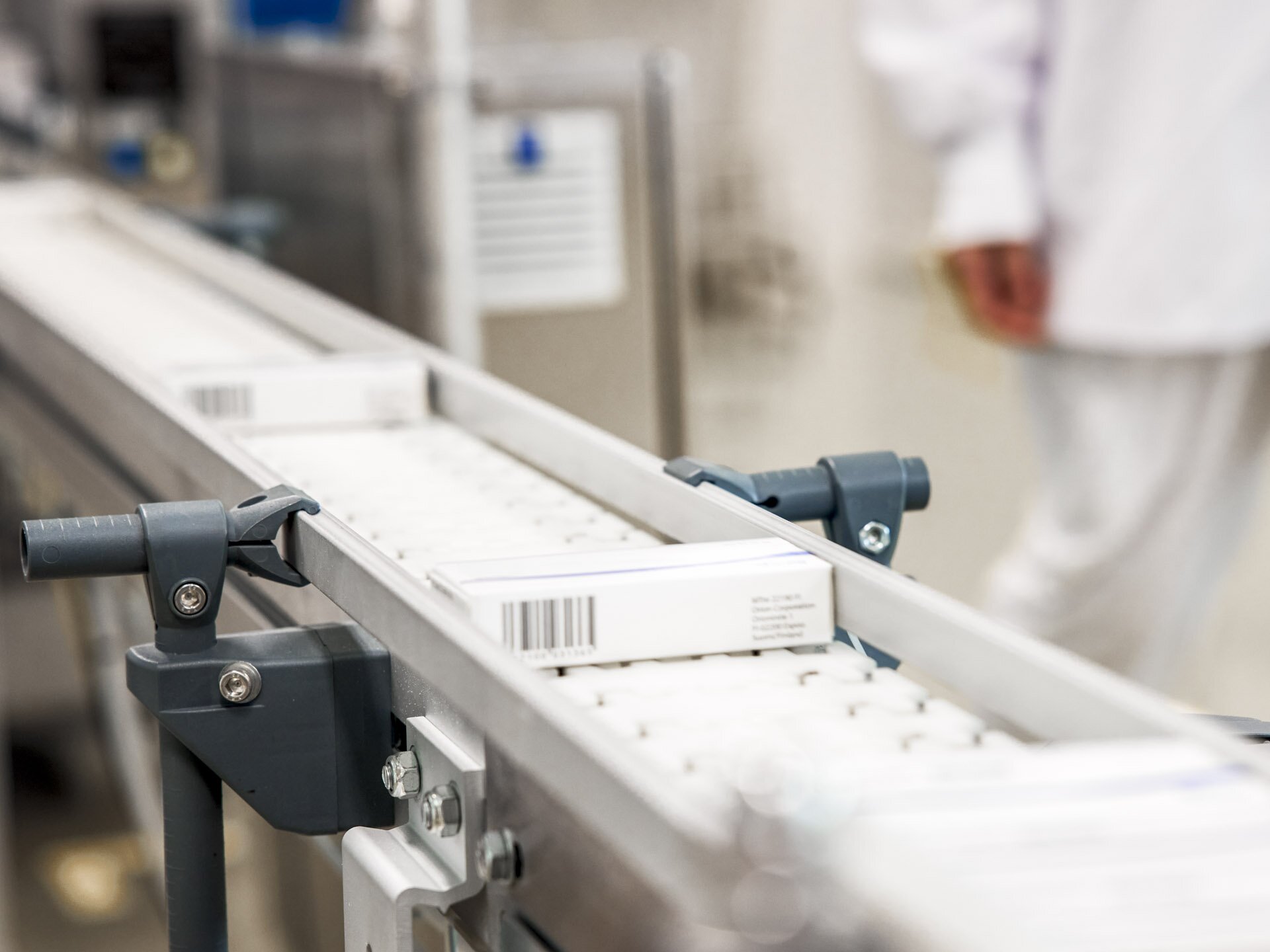The pharmaceutical industry’s operations are based on networks. Before a medicine reaches a pharmacy or a hospital, a wide range of competence is needed:
- research and development
- raw-material production
- manufacturing
- quality assurance
- packaging
- transport
- sales and distribution.
A sustainable company must be able to rely on its entire supply chain to respect the environment.
“Building a responsible supply chain starts with selecting the partners,” says Carolina Sved, who is responsible for supply chain sustainability at Orion.
Orion has partners in more than 50 countries. A lot of raw materials and finished products are sourced from Europe and from Asia, for example China and India. In addition to Finland, veterinary medicines are manufactured in France and packaged in Belgium.
Partner companies’ operations are audited on location
Orion aims to work with proven partners on a long-term basis. The practices of partner companies are always investigated in advance, and selected partners must commit to Orion’s Third-Party Code of Conduct, which sets out minimum standards for sustainable conduct. Environmental requirements relate to waste management and recycling, reduction of greenhouse gas emissions, risk management, and training, among others.
If determined necessary, the operations of companies seeking to become partners are audited on location. The audits investigate the company’s ways of operating and how the company ensures the sustainability of its own supply chain and of its partners. The audits are based on international practices and are carried out by specialised auditing companies that are recognised by the industry.
Orion commissions around 30 sustainability audits each year, and Orion representatives are usually on site during the audit. The audits also help Orion understand where the partner might need support. Systematic training in English and in the local language in China is organised by the international organisation Pharmaceutical Supply Chain Initiative (PSCI). Operations are reviewed every three to five years. If doubts arise at any other time, they are investigated immediately.
Monitoring of wastewater treatment is particularly important
A significant proportion of the ingredients in medicines are chemically manufactured. This requires a high standard of skill and is closely regulated. Natural raw materials are also used, but because the quantities used are small, the environmental impact of their sourcing is relatively minor.
Most of the adverse environmental impact of pharmaceuticals occurs after they have entered a human or an animal. The aim of drug development is to ensure that the smallest possible dose of an active ingredient will have the desired effect on the target receptor, in other words, to develop more effective drugs. It is important to remember that the active pharmaceutical ingredients are also eventually eliminated from the body naturally through excretion, either as metabolites or as itself. In environmental risks, impacts on waterways and biodiversity are emphasized.
“The pharmaceutical industry’s biggest environmental challenge is pharmaceutical ingredients ending up in the environment. Only about two per cent of the total amount ends up in the environment during production,” says Pekka Tallqvist, environmental specialist at Orion.
Chemical releases can occur during the production phase of pharmaceuticals if dangerous substances are processed or stored carelessly. This, together with the monitoring of the treatment of production wastewater, is therefore a key part of managing environmental risks and ensuring the sustainability of partners’ operations. The aim of training is to increase the partners’ understanding of what could happen if pharmaceuticals end up in the environment.
The pharmaceutical industry and its sourcing processes must take into account even unexpected impacts on nature. Recently, the industry as a whole has been particularly concerned about the possible links between palm oil and deforestation and the use of declining populations of horseshoe crabs as part of the pharmaceutical quality assurance process.
Science-based targets to help limit warming to 1.5
Pharmaceutical production is not particularly energy or emission intensive. Orion’s own plants in Finland have improved their energy efficiency and focused their energy sources to achieve significant reductions in carbon dioxide emissions. Marine transport is also used, when possible, to reduce carbon dioxide emissions. However, the vast majority of supply chain emissions are generated elsewhere.
Orion has submitted for validation its own science-based emission reduction targets that cover the entire value chain and are aligned with the effort to limit warming to 1.5 degrees. Our partners are critical in achieving these targets and we encourage them to set their own science-based emission reduction targets.











